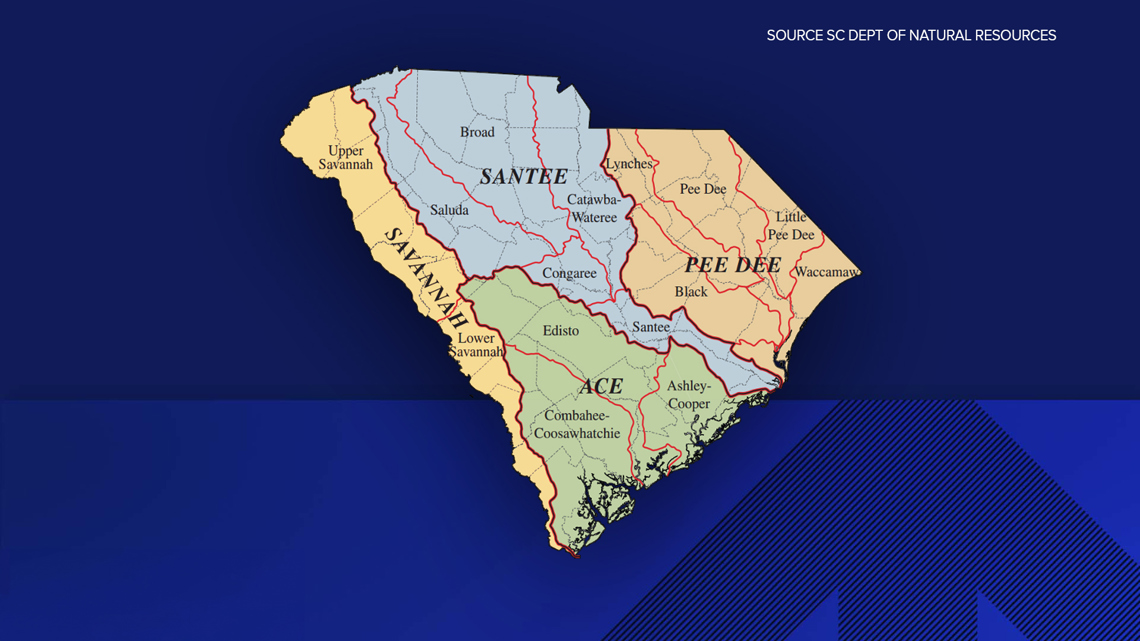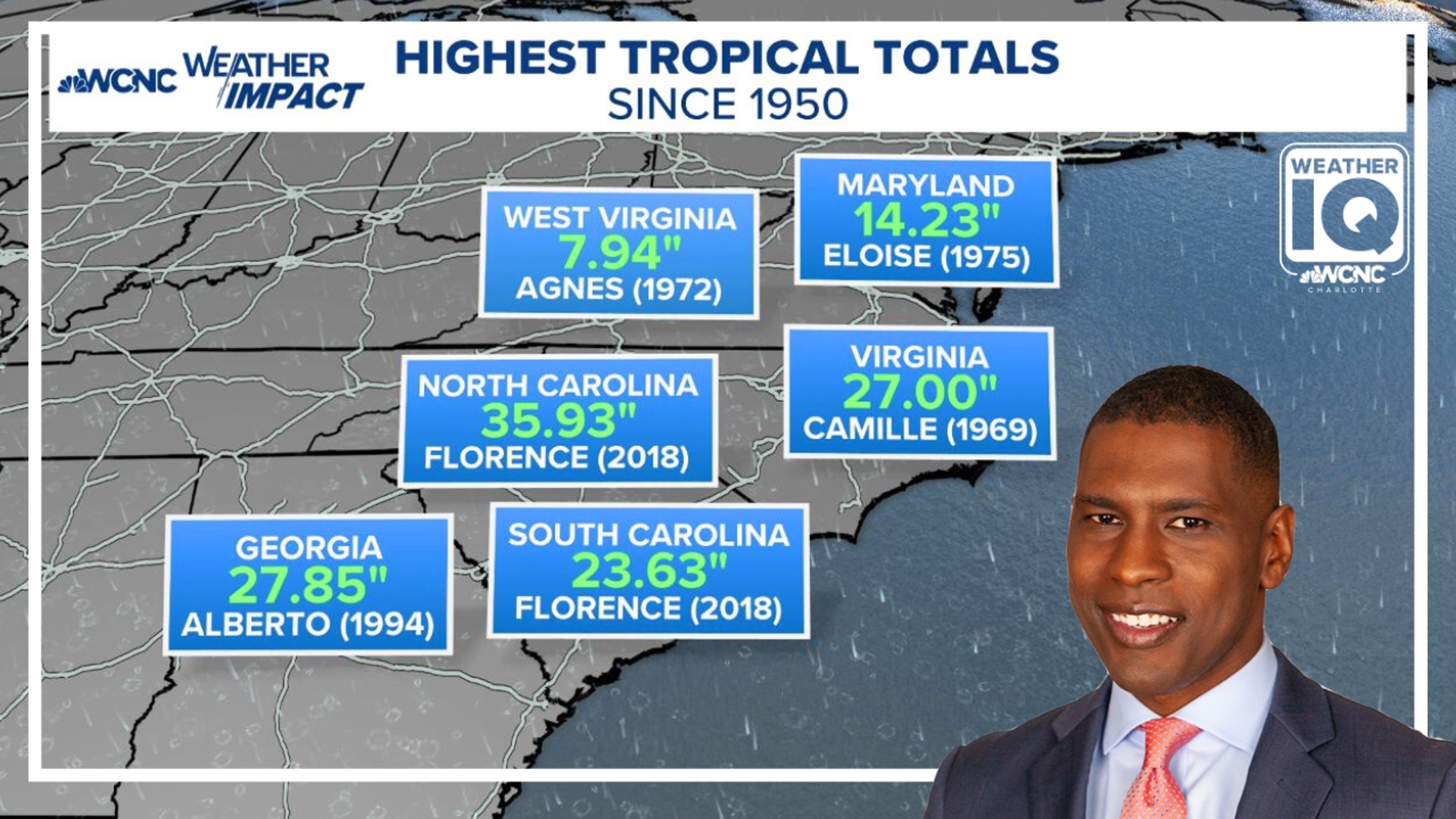CHARLOTTE, N.C. — Debby is on track to bring significant flooding to parts of the Carolinas with major impacts on both coastal and inland communities.
Debby's rainfall forecast looks eerily similar to some historic hurricanes that left parts of the Carolinas under water. A slow-moving tropical system spells excessive rainfall resulting in catastrophic flooding.
These types of systems are most known for causing considerable flash flooding, urban flooding, and river flooding including major highways, bridges, and overpasses impacted by floodwater.
Let's take a closer look at the history of flooding events in the Charlotte area.
Hurricane Florence made history as a category 1 hurricane when it stalled over the region and produced record-breaking rainfall and extensive flooding.
A breakdown of the top historic flood events from a hurricane or tropical storm across the Carolinas includes Hurricane Joaquin among several others. The storm, along with a combination of other weather phenomenon, collided and played a huge role in the Great South Carolina Flood.
South Carolina:
- Hurricane Floyd (1999) - Up to 12 to 20 inches Georgetown to Conway, South Carolina
- Hurricane Joaquin (2015) - Up to 26.88 inches in Mount Pleasant, South Carolina
- Hurricane Florence (2018) - Up to 15.79 inches in Marion, South Carolina
North Carolina:
- Hurricane Floyd (1999) - Up to 24.06 inches in Southport, North Carolina
- Hurricane Matthew (2016) - Up to 14 to 17 inches in Fayetteville, North Carolina
- Hurricane Florence (2018) - Up to 35.93 inches in Elizabethtown, North Carolina
Areas near Charleston recorded 26.88 inches of rain. Some other memorable names like Hurricane Matthew left its mark on inland areas like Fayetteville with more than a foot of rain. Hurricane Floyd in 1999 dumped two feet in Southport.


Major river basins and streams were impacted, which led to nearby homes to be inundated by rising water.
Given the excessive rainfall outlook, Debby is on track to have similar impacts later this week.
These historic flood events serve as important reminders to consider the impact of flooding and take steps to stay weather aware.
Contact KJ Jacobs at kjacobs3@wcnc.com and follow him on Facebook, X and Instagram.
WCNC Charlotte’s Weather IQ YouTube channel gives detailed explainers from the WCNC Weather Impact Team meteorologists to help you learn and understand weather, climate and science. Watch previous stories where you can raise your Weather IQ in the YouTube playlist below and subscribe to get updated when new videos are uploaded.

